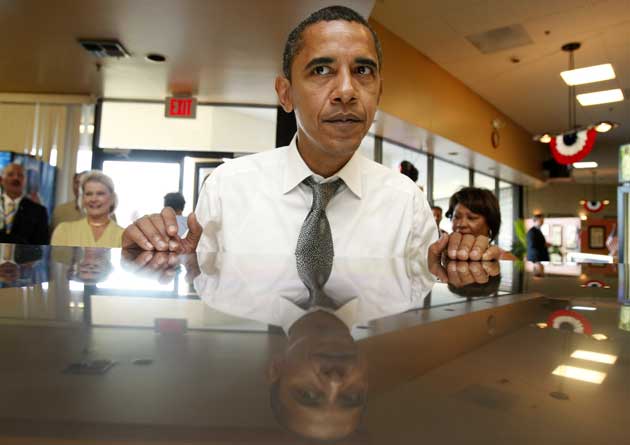Journalist or campaigner? You can be both with City's new postgraduate degree
A pioneering course is charting the common ground between journalism and political activism.

City University, known for its excellent record of getting students into employment, is steadily building a reputation as the Oxbridge of journalism and in September 2009, its highly respected postgraduate diplomas in newspaper and magazine journalism will have a new sibling: MA political campaigning and reporting.
The London university has bagged itself another big-name tutor, heavyweight broadcast and print journalist Ivor Gaber, who was previously emeritus professor at City's big rival, Goldsmiths. Gaber, who will lead the new postgraduate degree, joins a list of City journalism professors that includes such Fleet Street stalwarts as Roy Greenslade and David Leigh.
The course was originally conceived as a standalone political campaigning qualification. But Gaber, a political journalist by training, has seen a growing similarity between campaigning and reporting, and decided to add the journalism element.
"The skills of journalism and campaigning are beginning to overlap in a significant way," he says. He puts this down to the growth of the "blogosphere" and the ever-expanding army of online political commentators and citizen journalists. "It gets ever harder to distinguish campaigners from bloggers, from blogging journalists, from campaigning journalists or from traditional journalists," says Gaber. He thinks people are now also much more fluid and can move between journalism, public relations and political lobbying. The new course aims to make clear distinctions between each role. As Gaber puts it: "Who is saying what to whom, and for what purpose."
The Masters, believed to be unique in the UK, is aimed at people who are working in, or have a passion for, public affairs, politics, non-governmental organisations and news media. Though the teaching hours are the same as for a full-time qualification, the course will be taught in the evenings to allow professionals to continue their careers.
Early modules will offer an introduction to political communications – elections and anything seeking to influence policy – and the political decision-making process. Barack Obama's campaign for the US presdiency will be studied and one of the first people he will invite to speak is the man who organised Obama's internet campaign. Students will also go to select committee hearings and local councils to experience the political process. Campaigners and journalists will be brought in to discuss campaigns, particularly the unsuccessful ones, to highlight what went right and what went wrong.
The final project will ask students to either mount a real-life campaign or put together a portfolio of political reporting. Gaber says he is keen to attract international students and "spread the course to emerging markets", but there are no immediate plans to offer tuition via distance learning. Besides, Gaber says that in a course of this kind it is important to get people around a table, discussing the themes of the course.
A debate was held in October to mark the launch of the new course. Speakers included Nick Robinson, the BBC's political editor, Peter Tatchell, the human rights campaigner, and David Hill, who succeeded Alistair Campbell as press secretary to Tony Blair.
The debate addressed the issue of the sometimes difficult relationship between those in politics and those reporting it. Each of the speakers at the debate has signed up to give guest lectures on the Masters. The rest of the course will be taught by experienced journalists and campaigners.
As it is aimed at professionals, most candidates will be expected to have some professional experience. "Seminars are so much more valuable if you've got first-hand professional experience," says Gaber. "We hope that by training practising, and would-be, political campaigners and consultants alongside each other we can play a small part in strengthening the democratic processes in the UK and farther afield."
Talking politics
Ivor Gaber is professor of political campaigning and reporting at City University in London, and research professor in media and politics at the University of Bedfordshire. From 1985 he was at Goldsmiths' media and communications department, where he was made emeritus professor in 2000. He studied history and politics at Warwick and received a Masters in industrial relations from Sussex. His journalistic career included senior editorial positions at the BBC, ITN, Channel 4 and Sky News. He is now an independent radio producer and makes programmes for BBC Radio 4 and the World Service. He has written three books and published numerous articles on political communications. AS
Join our commenting forum
Join thought-provoking conversations, follow other Independent readers and see their replies
Comments
Bookmark popover
Removed from bookmarks